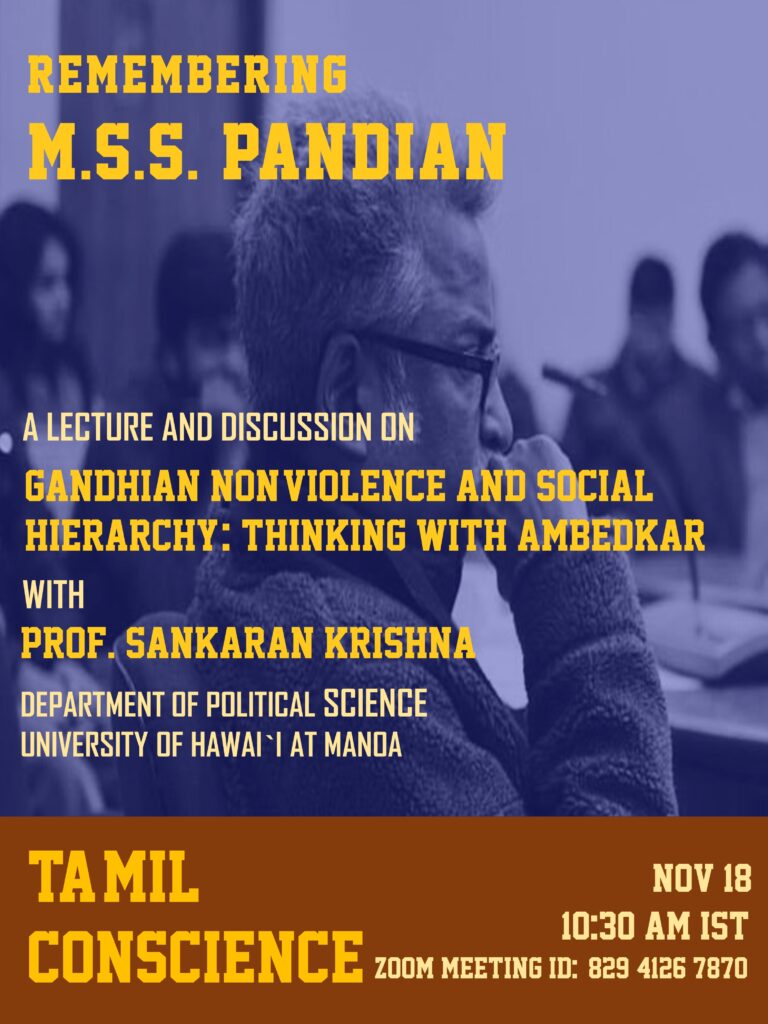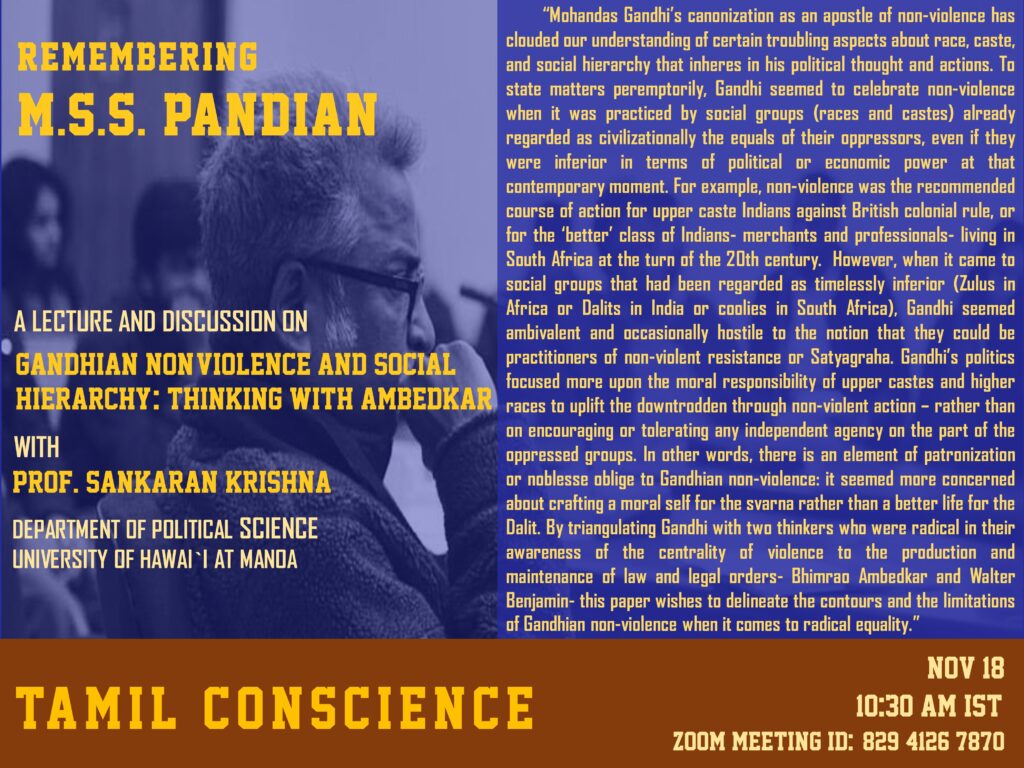Greetings from Tamil Conscience!


Tamil Conscience is conducting a lecture and discussion in remembrance of Prof. M.S.S. Pandian delivered by Prof. Sankaran Krishna titled, “Gandhian Non-violence and Social Hierarchy: Thinking with Ambedkar”.
The event is scheduled for 10:30 am on Wednesday, November 18th, IST on Zoom. Please register using the following link for the meeting:
Please find the abstract and posters below:
Gandhian Non-violence and Social Hierarchy: Thinking with Ambedkar.
Sankaran Krishna
Department of Political Science
University of Hawai`i at Manoa
Honolulu HI 96822
Mohandas Gandhi’s canonization as an apostle of non-violence has clouded our understanding of certain troubling aspects about race, caste, and social hierarchy that inheres in his political thought and actions. To state matters peremptorily, Gandhi seemed to celebrate non-violence when it was practiced by social groups (races and castes) already regarded as civilizationally the equals of their oppressors, even if they were inferior in terms of political or economic power at that contemporary moment. For example, non-violence was the recommended course of action for upper caste Indians against British colonial rule, or for the ‘better’ class of Indians- merchants and professionals- living in South Africa at the turn of the 20th century. However, when it came to social groups that had been regarded as timelessly inferior (Zulus in Africa or Dalits in India or coolies in South Africa), Gandhi seemed ambivalent and occasionally hostile to the notion that they could be practitioners of non-violent resistance or Satyagraha. Gandhi’s politics focused more upon the moral responsibility of upper castes and higher races to uplift the downtrodden through non-violent action – rather than on encouraging or tolerating any independent agency on the part of the oppressed groups. In other words, there is an element of patronization or noblesse oblige to Gandhian non-violence: it seemed more concerned about crafting a moral self for the svarna rather than a better life for the Dalit. By triangulating Gandhi with two thinkers who were radical in their awareness of the centrality of violence to the production and maintenance of law and legal orders- Bhimrao Ambedkar and Walter Benjamin- this paper wishes to delineate the contours and the limitations of Gandhian non-violence when it comes to radical equality.
- A lecture and discussion in remembrance of Prof. M.S.S. Pandian delivered by Prof. Sankaran Krishna
- வாழ்வே தவமாக …
- புள்ளிக்கள்வன்
- கம்பன் காட்டும் தோள்வலியும், தோளழகும்
- சிலம்பும் மரபும் – நாட்டுப்புறச் சமய மரபும் சிலப்பதிகாரமும்
- “மக்கள் கலைஞன்”: S.V. சுப்பையா
- சொல்வனம் இணையப் பத்திரிகையின் 234 ஆம் இதழ் தீபாவளிச் சிறப்பிதழாக இன்று (9 நவம்பர் 2020) வெளியிடப்பட்டுள்ளது.
- தி. ஜானகிராமனின் சிறுகதை உலகம் – 19 – உப்பிலியும் வேதாந்தியும்
- மொழிபெயர்ப்புக் கவிதை – நிர்ணயிக்கப்பட்ட தீ
- லூயிஸ் க்ளிக்கின் இருண்மைக் கவியுலகு- ஒரு பார்வை
- ‘ரிஷி’(லதா ராமகிருஷ்ணன்)யின் கவிதைகள்
- பயணம் மாறிப் போச்சு
- காலமும் கணங்களும் – பிரேம்ஜி ஞானசுந்தரன் (1930 – 2014)
- ஒரு கதை ஒரு கருத்து -எழில்வரதனின் ஹைப்ரீட் குழந்தை

